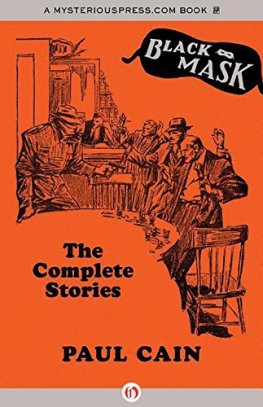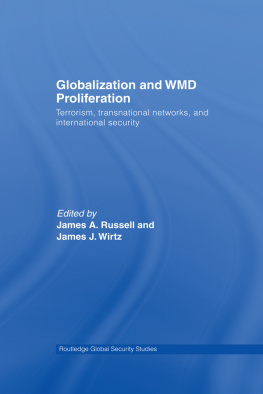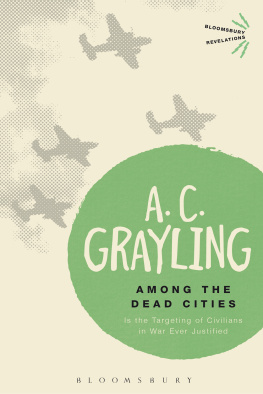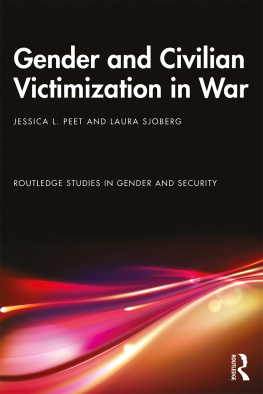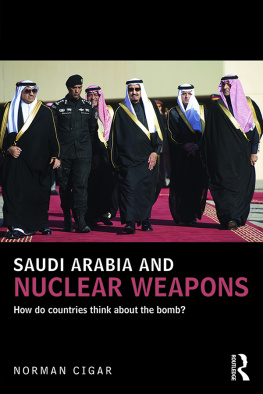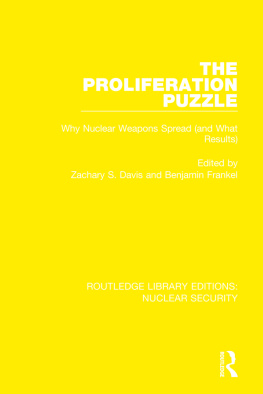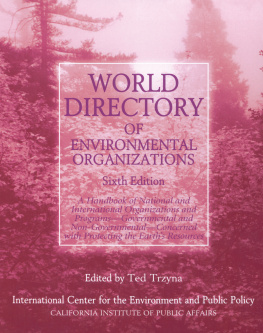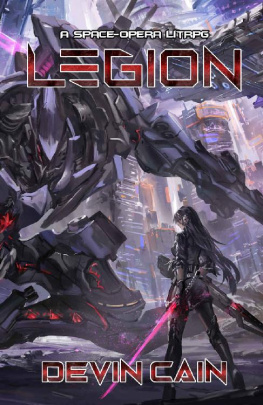Trzyna - Cain’s Crime: The Proliferation of Weapons and the Targeting of Civilians in Contemporary War
Here you can read online Trzyna - Cain’s Crime: The Proliferation of Weapons and the Targeting of Civilians in Contemporary War full text of the book (entire story) in english for free. Download pdf and epub, get meaning, cover and reviews about this ebook. year: 2018, publisher: Wipf & Stock Publishers, genre: Politics. Description of the work, (preface) as well as reviews are available. Best literature library LitArk.com created for fans of good reading and offers a wide selection of genres:
Romance novel
Science fiction
Adventure
Detective
Science
History
Home and family
Prose
Art
Politics
Computer
Non-fiction
Religion
Business
Children
Humor
Choose a favorite category and find really read worthwhile books. Enjoy immersion in the world of imagination, feel the emotions of the characters or learn something new for yourself, make an fascinating discovery.

Cain’s Crime: The Proliferation of Weapons and the Targeting of Civilians in Contemporary War: summary, description and annotation
We offer to read an annotation, description, summary or preface (depends on what the author of the book "Cain’s Crime: The Proliferation of Weapons and the Targeting of Civilians in Contemporary War" wrote himself). If you haven't found the necessary information about the book — write in the comments, we will try to find it.
Trzyna: author's other books
Who wrote Cain’s Crime: The Proliferation of Weapons and the Targeting of Civilians in Contemporary War? Find out the surname, the name of the author of the book and a list of all author's works by series.
Cain’s Crime: The Proliferation of Weapons and the Targeting of Civilians in Contemporary War — read online for free the complete book (whole text) full work
Below is the text of the book, divided by pages. System saving the place of the last page read, allows you to conveniently read the book "Cain’s Crime: The Proliferation of Weapons and the Targeting of Civilians in Contemporary War" online for free, without having to search again every time where you left off. Put a bookmark, and you can go to the page where you finished reading at any time.
Font size:
Interval:
Bookmark:
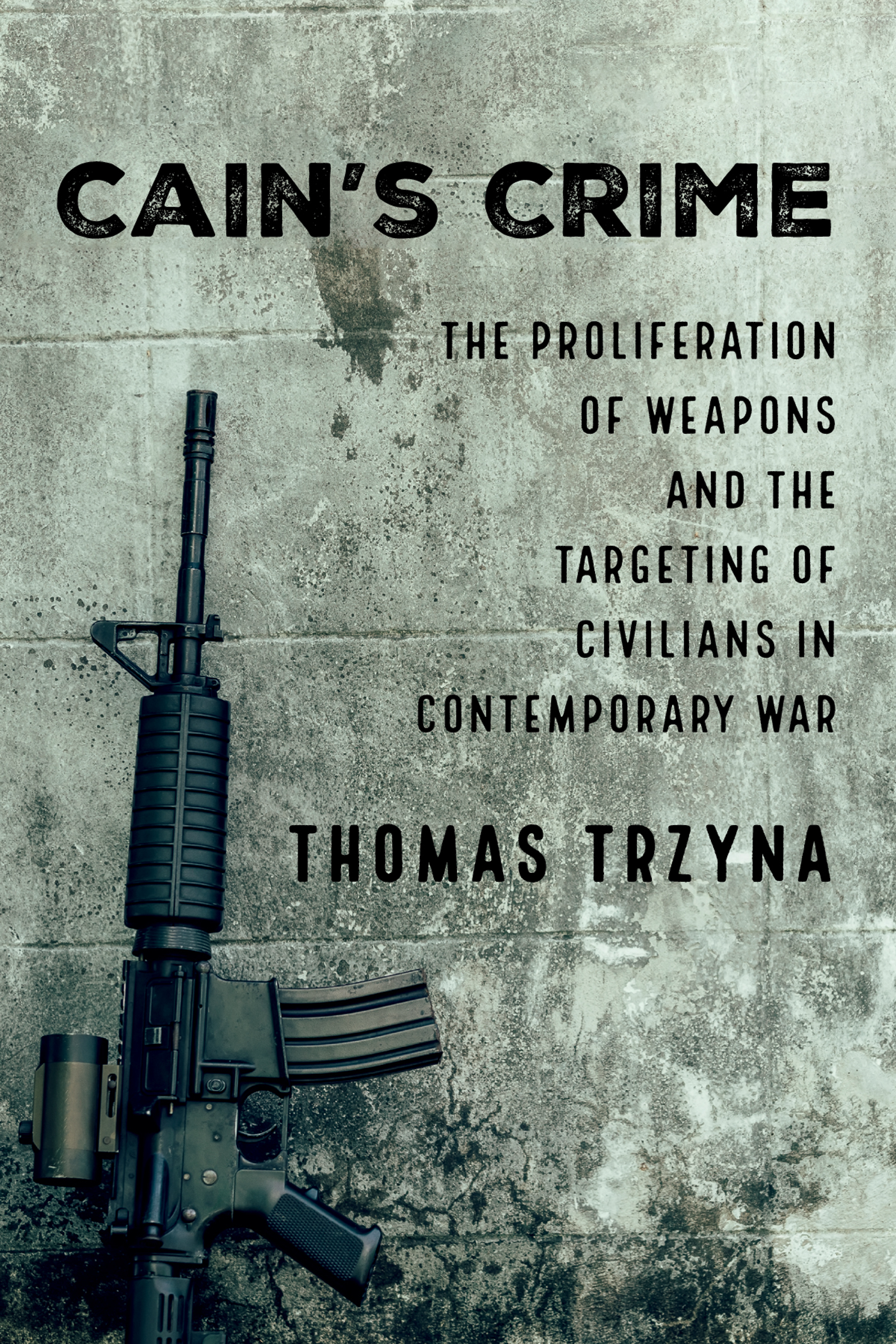
The Proliferation of Weapons and the Targeting of Civilians in Contemporary War
Thomas Trzyna

A book about the proliferation of weapons and the targeting of civilians in contemporary war needs a foundation, an ethical foundation. The argument presented here is based on the work of a once-famous ethicist whose work deserves more attention: Joseph Popper-Lynkeus, an Austrian scientist, inventor, and philosopher whose work was prized by theorists as diverse as Albert Einstein, Sigmund Freud, and Karl Popper. Once a foundation is laid, it will be possible to survey the state of violence in the contemporary world and to ask whether concerted efforts toward the control of weapons, small and large, are possible, and if such efforts are realistic when so many of the leading nations of the world have economic and political systems that depend in significant measure on the invention, production, marketing, sales, and free dissemination of weapons.
Human lives have infinite value. That is, each human life has infinite value because it embodies a fully unique perspective on the cosmos that will appear once and just once in the history of the universe. While the same claim can be made for other lives, and especially other conscious lives, and while the claim may appear to be hyperbolic, please bear with it for a time. Every human life has infinite value.
Sadly, a case needs to be made for such an absolute ethical claim.
We live in a time when politicians speak freely about making the Syrian desert glow, as did Texas Senator Ted Cruz during the 2016 US Presidential Primary elections. Did he mean glow from nuclear weapons, or from fire, or merely from intensive bombing, perhaps with incendiary bombs? Still worse, as reported by CNN and CNBC on August , 2016 , Republican presidential candidate Donald Trump during a briefing asked three times what was wrong with using nuclear weapons. The Moroccan army has in fact made the desert glow in Algeria, where the UN High Commission for Refugees runs the largest current refugee camp in the world. These refugees have fled the state of the Sahrawi Arab Republic, otherwise known as Western Morocco. There the Moroccan army has dropped napalm and white phosphorus on the UN camp to burn some of those refugees alive. The territory of the nation itself has been divided in half by an enormous earthen berm surrounded by land mines. We hear talk about killing the families of combatants, and going to war against major portions of the Earths population. In December 2016 , the citizens of Aleppo were being slaughtered as Syrian army forces retook rebel areas. It is terrifying to contemplate that the future US president would apparently consider using nuclear weapons as part of ordinary warfare, perhaps against targets such as ISIS in the Middle East.
At the same time, we face many tragedies of the commons, crises that put the sustainability of life on this planet at risk. Global warming receives attention; so does major pollution of the air and water. However, the planet is also poisoned through the manufacture and sales of so many weapons that they are easily acquired and put into action to kill and to maim. The focus of this book is the proliferation of weapons and the sale of weapons by major powers that present themselves to the world as purveyors of peace.
There are more wars active on the planet than any assemblage of armies could resolve, even if more violence were capable of bringing an end to cycles of violence that are often hundreds if not thousands of years old, such as the ongoing conflict between Shia and Sunni Muslims, which is part of a longer conflict between the Arab and Persian civilizations. It is not an idle claim that the collective armies of the world do not have the resources to end the collective wars of the world. It is obvious after over a decade of war in Iraq and Afghanistan that the military forces of the United States are not sufficient to pacify or reconstruct those nations, whatever pacify might mean, unless the United States were to make a far greater commitment of men and material than it is willing to do. Even then, any victory would only spawn more conflicts. Given the volatility of the surrounding areas and competition with Russia and other powers, it is hard to imagine what total and complete victory could mean, short of engaging in another world war. In other areas of the world, the landmasses are so great and the availability of airfields, fuel depots, and other necessities so limited that it is difficult to conceive of successful military interventions in longstanding ethnic and national conflicts. Africa is the largest continent. The various wars in the Congo, Mali, Nigeria, Algeria, Western Sahara, and so many other places involve spaces that utterly dwarf the size of Europe.
The manufacture and sale of weapons endanger us not only because weapons become available for killing and destruction of property. The purchase of weapons also twists the economies of nations by drawing resources away from infrastructure, education, and public services that contribute to the development of stable political and social systems. A deep cynicism underlies the manufacture and sales of weapons, as well. Nations that claim to support freedom rely heavily on sellingor in some cases giving awayweapons to less developed and less free nations. American foreign aid, for example, is often in the form of weapons that come from US manufacturers, with the bill paid by Congress, or from current stockpiles of weapons maintained by the Pentagon. Moreover, weapons are sold with the tacit provision that the merchant nations will always maintain a military advantage by keeping the latest and best weapons to themselves, though the major Western and Eastern powers that lead the arms race have not been able to keep some of the most sophisticated weapons out of the hands of powers they fear. Nuclear weapons have spread unpredictably.
Not only are there countless weapons available in the world and a staggering number of current wars, it is also true that contemporary wars are marked by the deliberate targeting of civilians. Just war theory, which is seldom applied except in debates after conflicts, aims to limit the damage of wars and to protect those who are not carrying arms. Yet economic and battlefield realities encourage strategists to kill civilians in order to end wars. The greater the suffering in a target nation, the more likely a state will fail or surrender, or there will be public uprisings to overthrow governments. Moreover, studies of so-called collateral damage tend to play games with the facts. Collateral damage cannot be limited to what can be measured immediately: the number of civilians killed in a drone strike or the number of children and hospital patients dead because of the short-term elimination of medical facilities and water-treatment systems. Collateral damage must be measured over the long term, because the damage tends to go on for a generation or more.
In the terms of familiar ethical theories that are consequentialist or utilitarian, a moral choice is weighed by its effects. On the classic utilitarian view, the question is whether an action benefits the greater number. (Utilitarianism, therefore, can be used to justify human slavery, if the slave owners are happy and larger in number.) Consequentialism, more generally, asks what are the measurable effects of an action. But how are effects to be calculated and over what period of time? Public discussions of wars often attempt to paint rosier outcomes by refusing to count many kinds of short- and long-term effects, notably those that affect noncombatants who are not outright killed by drones, bombs or crossfire. Long-term effects tend to be disregarded entirely. The reconstructions of Germany and Japan after World War II, with major international investment, represent outliers in successful recovery. Typically, nations that endure major wars are impoverished and unstable for generations, which is why one war or civil war in a nation is likely to be followed by another.
Font size:
Interval:
Bookmark:
Similar books «Cain’s Crime: The Proliferation of Weapons and the Targeting of Civilians in Contemporary War»
Look at similar books to Cain’s Crime: The Proliferation of Weapons and the Targeting of Civilians in Contemporary War. We have selected literature similar in name and meaning in the hope of providing readers with more options to find new, interesting, not yet read works.
Discussion, reviews of the book Cain’s Crime: The Proliferation of Weapons and the Targeting of Civilians in Contemporary War and just readers' own opinions. Leave your comments, write what you think about the work, its meaning or the main characters. Specify what exactly you liked and what you didn't like, and why you think so.

